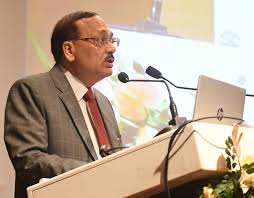NEW DELHI: Judge-less courts were neither feasible, nor desirable as adjudication requires nuanced understanding of complex legal issues, human emotions, societal values and intricate application of legal principles, Justice Surya Kant of the Supreme Court said today.
Besides, the subtleties of human behaviour often played a crucial role in legal decisions. Justice Kant said relying on data and algorithms, the Artificial Intelligence (AI) could not fully grasp the complexities despite all its advancements.
ustice Kant, who was in Chandigarh for a two-day ‘National Conference on the Landscape of Technology in Courts in India and the Way Forward’, said the judicial process involved empathy, application of discretion and interpretive judgement — qualities that were inherent to human judges and not replicable by machines.
Speaking at the sidelines of the conference, Justice Kant said AI could undoubtedly support and enhance the judicial process, but replacing judges would diminish the human element that was necessary for delivering justice.
The conference concluded today with Justice Rajesh Bindal and Justice Augustine George Masih of the Supreme Court, and Chief Justice Sheel Nagu of the Punjab and Haryana High Court collectively reflecting on the critical role technology played in transforming courts, enhancing access to justice, improving efficiency, leveraging AI and fostering collaboration.
Justice Kant said AI undoubtedly held immense potential in revolutionising the judicial process. AI-powered tools could assist in legal research, providing judges and lawyers with quick access to relevant case laws and statutes — expediting the decision-making process. Machine-learning algorithms could identify patterns in legal documents and case histories, aiding in the early detection of potential delays or bottlenecks in the judicial process, he said.
It was equally important to recognise the significant harms it might entail. The introduction of online proceedings for high courts and the Supreme Court had led to the circulation of clips from the proceedings on social media he said. The proliferation of AI-generated deep-fakes made it increasingly difficult to distinguish between reality and fabrication.
Justice Surya Kant said he envisioned a judicial system where every citizen, regardless of socio-economic status or geographical location, had seamless access to justice.
The Indian Judiciary would share its technological advancements with nations through exchange programmes, reflecting its leadership in judicial innovation in 2025, said Justice Kant, who recently led the Indian delegation at the Chief Justices Conference of BRICS countries.
Justice Surya Kant said the judicial process involved empathy, application of discretion and interpretive judgement qualities that were inherent to human judges and not replicable by machines. Artificial Intelligence (AI) could undoubtedly support and enhance the judicial process, but replacing judges would diminish the human element that was necessary for delivering justice.


